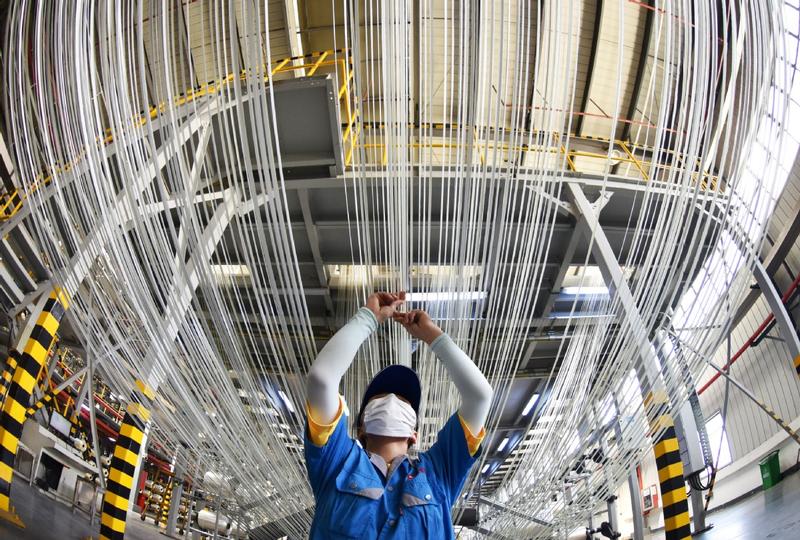 A worker checks the operation of a carbon fiber production line at a factory in Lianyungang, Jiangsu province. (GENG YUHE / FOR CHINA DAILY)
A worker checks the operation of a carbon fiber production line at a factory in Lianyungang, Jiangsu province. (GENG YUHE / FOR CHINA DAILY)
After the central authorities recently optimized the country's pandemic prevention and control measures, a fast forward button has been pressed in terms of work and production resumption nationwide.
To bring the country's social and economic development back onto the normal track at an early date has become a new task that governments at all levels now face as the country turns a new page in the fight against the novel coronavirus.
In a latest move, the Ministry of Transport on Sunday issued a notice requiring authorities to make efforts to resume the regular operation of public transport services. They must work to ensure that passengers can travel to other regions without any hindrance such as having negative nucleic acid test results, a green health code, doing a test upon arrival, or information registration, according to the notice.
The resumption of work and production is crucial because it has a direct bearing on employment and the country's overall economic performance. The task is given an additional sense of urgency now that the Central Economic Work Conference held last week has made economic stability and steady economic progress the top priorities for next year.
Yet to resume work and production as quickly as possible is easier said than done given the dire straits many businesses find themselves in. Apart from weak demand, increasing costs and disrupted logistics, many enterprises now face the additional woe of a worker shortage due to the recent surge in infections in many places and the exodus of workers returning to their hometowns for Spring Festival. Moreover, many enterprises are hesitating to draft any long-term plans due to many production disruptions they have experienced as a result of pandemic prevention and control responses over the past three years.
All this requires officials to not only make the best use of policy support to help businesses address their concerns, but more important, take concrete steps to stabilize the expectations of enterprises for the future so as to stimulate the vitality of the market.
The tone-setting Central Economic Work Conference has already served as a confidence-booster to some extent as it sent a clear message that the authorities will continue to encourage, support and guide the development of the non-public sector, which accounts for the majority of the country's employment, taxation and GDP. In particular, the real estate industry and platform-based economy, two major drivers of domestic consumption, are expected to receive more government support next year.
All market players must seize the hour and work to contribute to an early recovery of China's economy in response to eased pandemic prevention and control measures.


